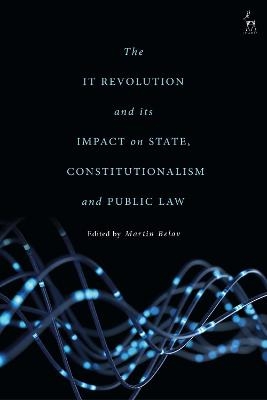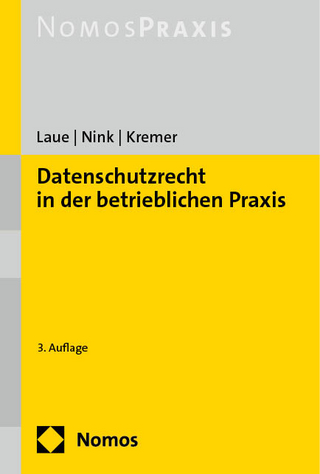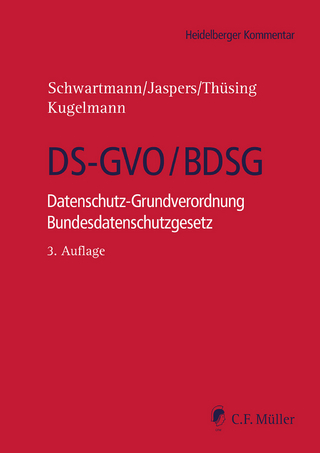
The IT Revolution and its Impact on State, Constitutionalism and Public Law
Hart Publishing (Verlag)
978-1-5099-4467-5 (ISBN)
This edited collection explores the different aspects of the impact of information and technology revolution on state, constitutionalism and public law. Leading European scholars in the fields of constitutional, administrative, financial and EU law provide answers to fascinating conceptual questions including:
- What are the challenges of information and technological revolution to sovereignty?
- How will information and technology revolution impact democracy and the public sphere?
- What are the disruptive effects of social media platforms on democratic will-formation processes and how can we regulate the democratic process in the digital age?
- What are the main challenges to courts and administrations in the algorithmic society?
- What is the impact of artificial intelligence on administrative law and social and health services?
- What is the impact of information and technology revolution on data protection, privacy and human rights?
Martin Belov is Professor in Constitutional Law at the Faculty of Law, University of Sofia 'St. Kliment Ohridski', Bulgaria and Adjunct Professor at University Roma Tre, Italy.
PART I
STATE AND CONSTITUTIONAL LAW IN THE CONTEXT OF THE INFORMATION
AND TECHNOLOGY REVOLUTION
1. Post-human Constitutionalism? A Critical Defence of Anthropocentric and Humanist Traditions in Algorithmic Society
Martin Belov, University of Sofia ‘St. Kliment Ohridski’, Bulgaria
2. Constitutional Dimensions of Information Revolution
Daniel Valchev, University of Sofia ‘St. Kliment Ohridski’, Bulgaria
3. The Impacts of Technological Revolution on the Role of the State
Attila Menyhárd, Eötvös Loránd University, Hungary
4. Global Information Law: How to Enhance the Legitimacy of the Information Order in and beyond the State?
David Roth-Isigkeit, Wurzburg University, Germany
PART II
INFORMATION AND TECHNOLOGY REVOLUTION AND ITS IMPACT ON DEMOCRACY
AND THE PUBLIC SPHERE
5. The Disruptive Effects of Social Media Platforms on Democratic Will-Formation Processes
Hoai-Thu Nguyen, Jacques Delors Centre in Berlin, Germany
6. Data Revolution and Public Will Formation: Regulating Democratic Processes in the Digital Age
Sascha Hardt, Maastricht University, Netherlands
PART III
MONETARY SOVEREIGNTY AND TAXATION IN THE INFORMATION TECHNOLOGY ERA
7. Monetary Sovereignty in Conditions of Technological Revolution
Marko Dimitrijevic, University of Niš, Serbia
8. Conceptual and Legal Challenges to the Public Order of States Stemming from Cybercurrencies
Benjamin Moron-Puech, Paris II Panthéon-Assas University, France Jérémy Cornaire and Harrison Colins
9. The ‘Algorithmic Revolution’: Fair Taxation, Social Pact and Global Governance
Stefano Dorigo, University of Florence, Italy
PART IV
THE IMPACT OF INFORMATION AND TECHNOLOGY REVOLUTION ON COURTS AND ADMINISTRATION
10. The Impact of Information and Communication Revolution on Constitutional Courts
Angioletta Sperti, University of Pisa, Italy
11. The Constitutional Limits of Digital Justice
Artur Flamínio da Silva, Universidade Autonoma de Lisboa, Portugal and Daniela Mirante, Universidade Nova de Lisboa, Portugal
12. The Impact of Artificial Intelligence on Administrative Law
Alessandro Puzzanghera, University for Foreigners ‘Dante Alighieri’, Italy
PART V
THE INFORMATION AND TECHNOLOGY REVOLUTION AND ITS IMPACT ON DATA ROTECTION, PRIVACY AND HUMAN RIGHTS
13. The Impact of the Information and Technology Revolution on the Constitutional Rights with Particular Attention to Personal Data Protection Issues
Carlo Colapietro, Roma Tre University, Italy
14. The Digital Revolution and the Constitutional Orders’ Vertical and Horizontal Challenges to Protect Privacy
Patricia Jonason, Sodertorn University, Sweden
PART VI
INFORMATION AND TECHNOLOGY REVOLUTION AND HEALTH RELATED RIGHTS
15. Artificial Intelligence in Social and Health Services: A New Challenge for Public Authorities in Ensuring Constitutional Rights
Guerino Fares, Roma 3 University, Italy
16. Gene Editing e-Machine Learning: The International and EU Legal Framework
Nadina Foggetti, University of Bari Aldo Moro, Italy
| Erscheinungsdatum | 24.02.2021 |
|---|---|
| Verlagsort | Oxford |
| Sprache | englisch |
| Maße | 156 x 234 mm |
| Themenwelt | Recht / Steuern ► Allgemeines / Lexika |
| Recht / Steuern ► EU / Internationales Recht | |
| Recht / Steuern ► Öffentliches Recht | |
| Recht / Steuern ► Privatrecht / Bürgerliches Recht ► IT-Recht | |
| ISBN-10 | 1-5099-4467-2 / 1509944672 |
| ISBN-13 | 978-1-5099-4467-5 / 9781509944675 |
| Zustand | Neuware |
| Haben Sie eine Frage zum Produkt? |
aus dem Bereich


